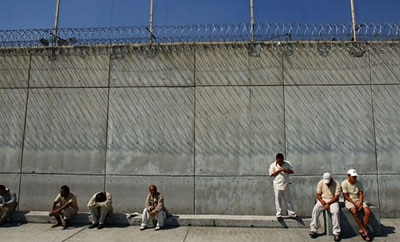Only 30 percent of those detained on drug trafficking charges in Mexico are actually convicted, raising questions about the ability of Mexico’s justice system to effectively take on organized crime.
According to a report released by Mexico’s Attorney General’s Office (PGR) and cited by the Associated Press, just 31 percent (1,072 of 3,439) of those arrested on drug charges between 2006 and 2011 were actually convicted. The report found that the largest number of drug trafficking arrests that resulted in jail time occurred in 2009, when 802 of 866 spent time in jail (likely as a result of pretrial detention), but only 122 were formally convicted. The following year only 82 were convicted, out of 680 total detentions.
Authorities in the PGR claim that 23 money laundering networks were dismantled during this time period, resulting in a total of 639 arrests. As happened with drug trafficking suspects however, most of these were released. According to the PGR figures, less than 13 percent — 82 in total — were convicted.
InSight Crime Analysis
While a 31 percent conviction rate for drug trafficking is low by standards of law enforcement in the United States, where the figure is greater than 90 percent, it may be a positive sign for Mexico. Previous reports of impunity for drug traffickers had estimated the conviction rate to be half that number, at 15 percent.
The figure is even more impressive when looking at the shoddy state of the country’s judicial system as a whole. A 2011 study by Mexico’s National Autonomous University found that police only investigate 4.5 percent of reported crimes every year in Mexico, and that just one percent make it to trial. It is also higher than the conviction rate for murders (20 percent), which is interesting considering that many drug traffickers have more money and influence over local judges than most murder suspects.
Of course, this does not mean that the Mexican justice system is immune from criminal influence. Trying and convicting powerful players in the drug trade like Joaquin “El Chapo” Guzman would still be a difficult task, which is one of the reasons why the number of extraditions to the US has increased since 2006. Additionally, even when drug traffickers are convicted and sent to prison, the poor state of security in Mexican jails ensure that many continue to run their organizations from inside.

